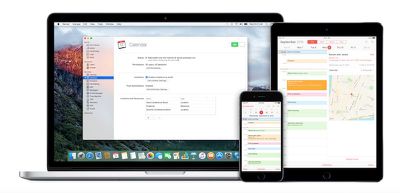Apple today updated its macOS Server Mac app with a collection of new features in Version 5.2 that bring integration with Apple School Manager, various streamlining updates to the Setup Assistant of some apps, and security restrictions for new macOS features like auto-unlock with Apple Watch.
Specifically, macOS Server users can now choose to skip the new Siri Setup Assistant in Sierra, as well as the setup panes in iOS 10 for iMessage and FaceTime.

Previously dubbed "OS X Server," the app introduces "even more power to your business, home office, or school," by turning any Mac into a powerful server. macOS Server can make it easier to share files, synchronize contacts, host a website, configure iOS devices, remotely access your home network, and more.
What's New in Version 5.2
Profile Manager
• Integration with Apple School Manager to get Managed Apple ID and class information
• Skip the iMessage & FaceTime Setup Assistant pane in iOS 10
• Skip the Siri Setup Assistant pane in macOS Sierra version 10.12
• Choose default app for audio calls for Contacts, Exchange, and Google accounts
• Set Bluetooth Modification restriction on supervised devices
• Set Apple Music; iCloud Keychain Sync; and Sharing to Notes, Reminders, or LinkedIn restrictions for macOS Sierra version 10.12
• Set new IKEv2 authentication method option or specify IPSec disconnect on idle timeout for VPN
• Restrict Cisco fast lane Quality of Service marking or disable captive network detection for Wi-Fi networks
• Restrict unlocking a Mac using Apple Watch
• Configure IP firewallCaching Server
• Enhanced control over peer replicationSMB
• To improve security, SMB connections now require signing by default.NFS
• AES is now a supported encryption type for Kerberized NFSXsan 5
• macOS Sierra and Server 5.2 include support for the Xsan 5 file system. Xsan 5 is compatible with the Quantum StorNext 5.3 file system.
• See Xsan Compatibility information before upgrading to Xsan 5.
Anyone interested can download macOS Server from the Mac App Store for $19.99. [Direct Link]
























Top Rated Comments
Lawyers owe a duty to their clients to keep client data confidential. Doctors and other health-care professionals have to comply with various HIPAA data storage regulations. Anyone doing business with Europeans have to take extra care of personal data per various treaties.
In some of these cases, not knowing exactly where your data is physically stored could be seen as a per se violation. I think it would be quite a good solution to some small businesses, which are too small for a huge IBM or Cisco enterprise software, to just be able to host their own icloud server, and let all their docs, spreadsheets, pictures, and app data live there. They can choose to implement a security policy as strict or as relaxed as they deem appropriate, with some policies that Apple doesn't support in their own icloud (e.g., I would configure my icloud server to only respond to known whitelist of MAC addresses).
I would pay $500+ for a version of OS X Server that had this. Surely many other small businesses that are required to take their data seriously but also like using iOS devices would too.
Notably, there is a good market for this. Netgear's ReadyNAS, Western Digital's MyCloud, Synology, etc. They all offer pretty good hardware/software that does what I described. But none of their solutions integrate with iOS as well as iCloud does. If a business that loves iOS is willing to spend $5000 on a good Synology setup, surely they would spend $1000 to buy OS X Server that includes iCloud server.